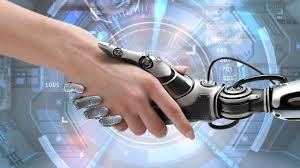Artificial Intelligence (AI) has changed into a buzzword in today’s tech-motivated entire world, but exactly what is it? At its central, Artificial Intelligence (umela inteligence) means the simulation of individual intelligence processes by machines, typically pc techniques. These procedures involve discovering (the acquisition of data and policies for using it), reasoning (using regulations to reach approximate or clear findings), and self-modification.
artificial intelligence (umela inteligence) will not be a fresh principle, but latest breakthroughs in computers energy and sets of rules have propelled it to the spot light. The two main major kinds of AI: narrow AI and basic AI. Slim AI, also known as poor AI, is designed to perform a certain project, such as face identification or terminology interpretation. General AI, or powerful AI, is hypothetical and describes AI with the ability to understand, find out, and apply understanding across various websites, similar to human being intelligence.
Unit learning, a subset of AI, has an important role in enabling pcs to discover from information without being explicitly programmed. Deep discovering, a specialised type of equipment discovering, requires neural networking sites with lots of layers, permitting them to gain knowledge from considerable amounts of web data. These technological innovation strength numerous AI apps, from digital assistants like Siri and Alexa to autonomous cars and healthcare medical diagnosis solutions.
Even with its prospective advantages, AI also boosts honest and societal problems. Concerns like job displacement because of automation, biased sets of rules, and privacy violations have started arguments around the world. As AI will continue to develop, it’s essential to address these difficulties although using its transformative potential for the enhancement of community.
